A First in what will be a series of articles covering my time in Taiwan as an invited member of an international press delegation during Taiwan’s National Day Celebrations By Ruth Ann Ruiz The Post Newspaper Features Editor

A First in what will be a series of articles covering my time in Taiwan as an invited member of an international press delegation during Taiwan’s National Day Celebrations
National Day celebrations in Taiwan are held every year on October 10. While many forms of festivities take place, it is the President’s speech that draws the highest level of attention.
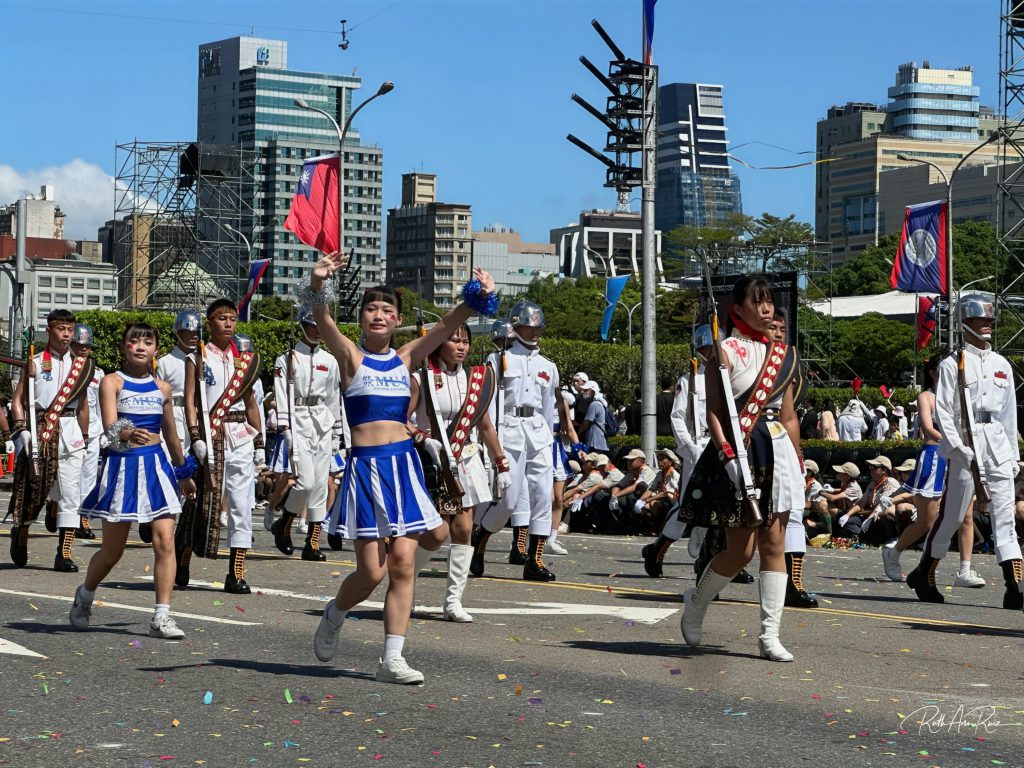
A formal celebration held in the plaza located in front of the Presidential Office building begins in the morning. Visiting dignitaries and visiting journalists are greeted in the Presidential greeting room. As a member of an international delegation of journalists, I was able to greet the President.
While the greetings are taking place, numerous national heritage groups perform on the plaza with spectators lined up along the street.
After the formal greetings are completed, the Taiwan National Anthem is sung while military helicopters fly overhead, displaying the Taiwanese flag. A formation of soldiers in dress uniform stands at attention for the formalities and throughout the President’s speech.
President Lai delivered a speech that conveyed many messages for his people, with reminders from their past and the sacrifices that were made so that modern-day Taiwan can exist as a democracy. He included an update on the state of Taiwan’s economy and the nation’s resolve to continue as a democratic nation, along with his promise to continue his commitment to Taiwan.
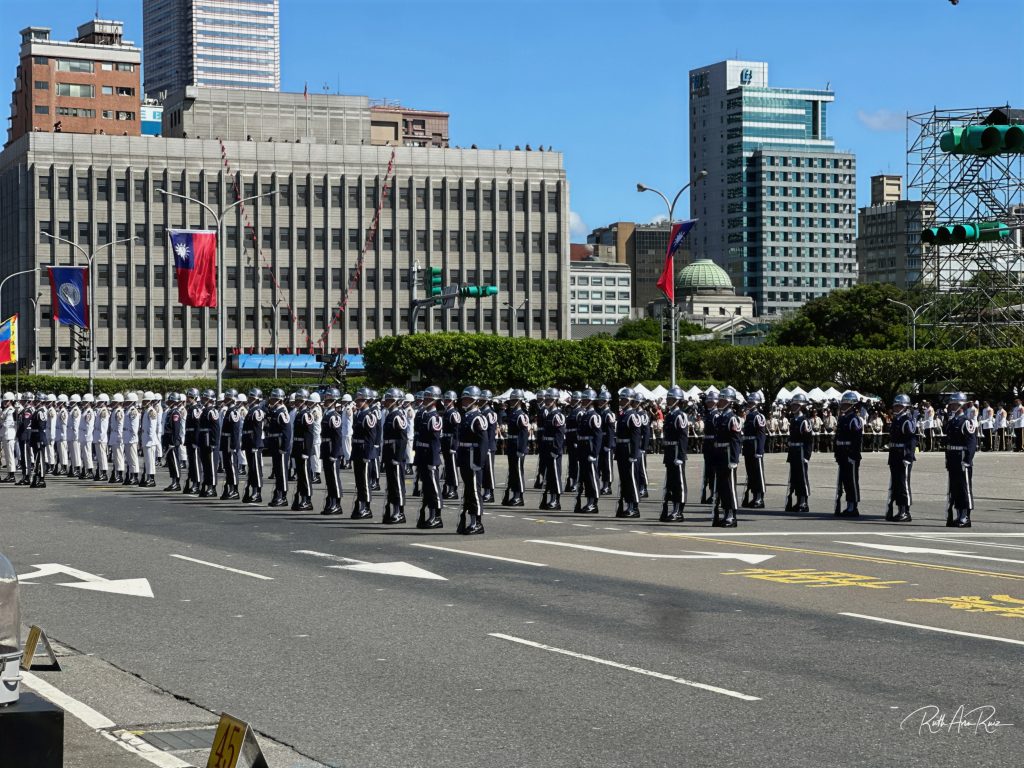
Beyond a rousing history lesson and updates on the economy, beyond laying out an economic plan and plans for further technological development, and even beyond providing inspirational words, President Lai shared some decisive action that many people around the world were waiting to hear.
“At the end of this year, we will be proposing a special budget for national defense,” said Lai. “Defense spending as it is defined by NATO will exceed 3 percent of the GDP next year and will reach 5 percent of GDP by 2030.”
With the increased defense budget, Lai laid out three goals:
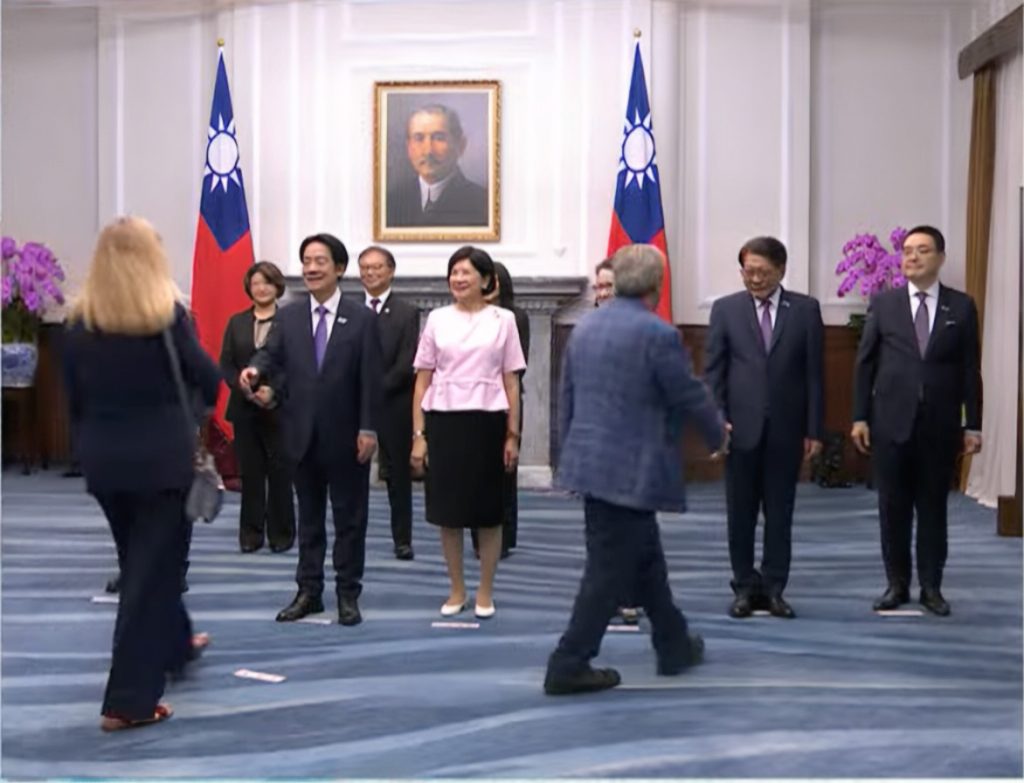
First: Building a T-Dome—establish a rigorous air defense system in Taiwan with multi-layered defense, high-level detection, and effective interception.
Second: Advance the integration of high-tech and AI technologies to build a smart defense combat system.
Third: Collaborate with the military industries of other advanced nations to bolster our defense industry capabilities.
“We are determined to maintain peace through strength,” said Lai.
After his speech, confetti and streamers were strewn through the air, and the festivities continued with soldiers proceeding down the street, followed by a military band. The procession continued with children and adults waving the Taiwanese flag as they rode in military vehicles. There was a high school band with cheerleaders, along with other cultural performing groups who passed by.
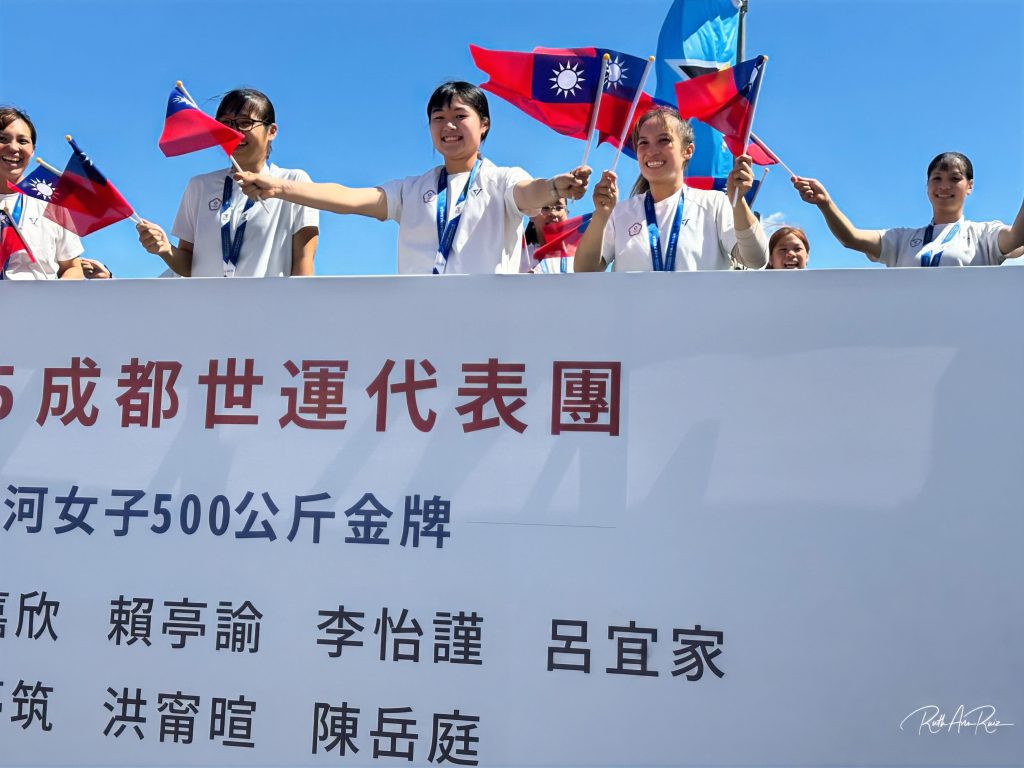
Just as it seemed there could not be anything else as exciting as all that had occurred, there was a sound rising in the sky—a sound of ancient chants of many people with one voice.
In the plaza, an intense performance of what seemed to be ancient warriors moving in unison began. It was a profound experience to watch and listen. Being drawn in by the powerful force of the chanting, I left my seat in the shade to get as close as I could.
Their voices rose up through the skies and came back down for everyone to hear and for myself to be fully captivated. Other journalists from the delegation were also captivated by the experience and stood intently gazing at the moving exhibition of what seemed to be ancient warrior dancers.
The festivities continued with more young people in cultural groups and a flyover of military jets.
It was time for our delegation to continue our celebration with a trip to the International Beef Noodle Festival held in Taipei—a three-day festival that attracts people from Taiwan and other nations, with 154 competitors.
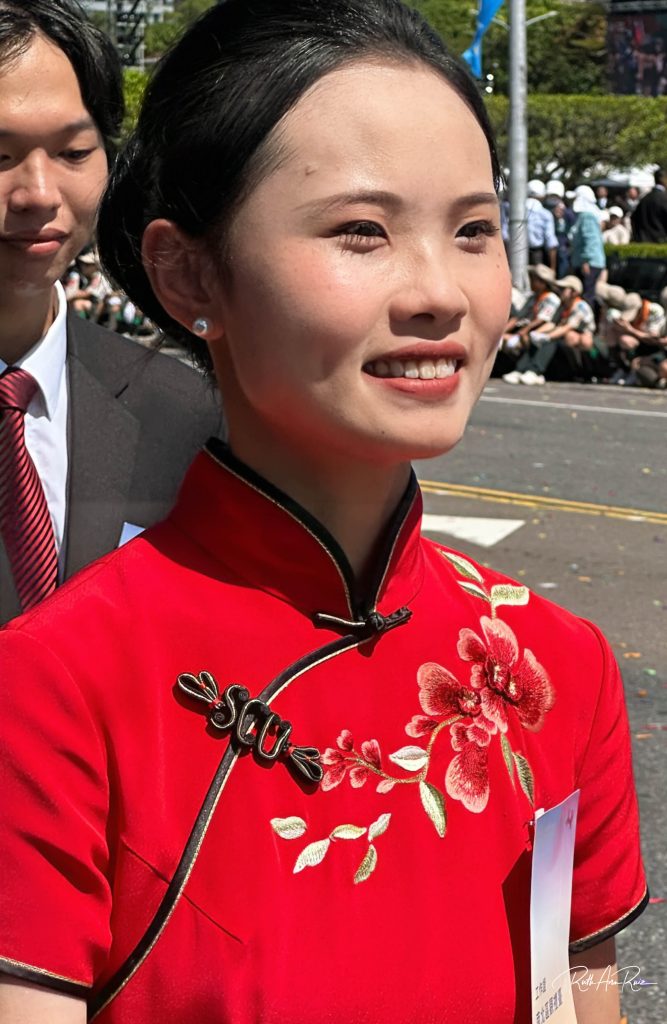
“The competition encourages friendly rivalry and exchange of culinary skills,” said a spokesperson for the festival.
The flavors of the beef and texture of the noodles were a culinary delight that indeed had an international appeal. My favorite was the tomato beef noodles.
Our delegation’s lunch had been specially created and prepared by Chef Hung, Chairman of the Taipei Beef Noodle Exchange and Development Association, and Chef Ku of the Guolian Hotel, a two-time Beef Noodle Festival champion.
For the delegation of journalists, our activities included attending an evening reception at the Taipei Guest House, where we were again greeted by national officials. After the formal greetings, the party inside was filled with invited guests who enjoyed many food stations and beverage areas, along with live violinists whose music was lively and crisp.
As it was a patriotic day in a nation far away from my own, I did not have a personal sense of national pride—I had a deep and profound feeling of pride in the commonalities we share and the goodness of mankind. It was a truly humbling experience to be part of Taiwan’s National Day celebrations.
I will, no doubt, remember Taiwan’s 114th National Day for the rest of my life.


1 comment
Wow! This so special, just wonderful and what a great honor!